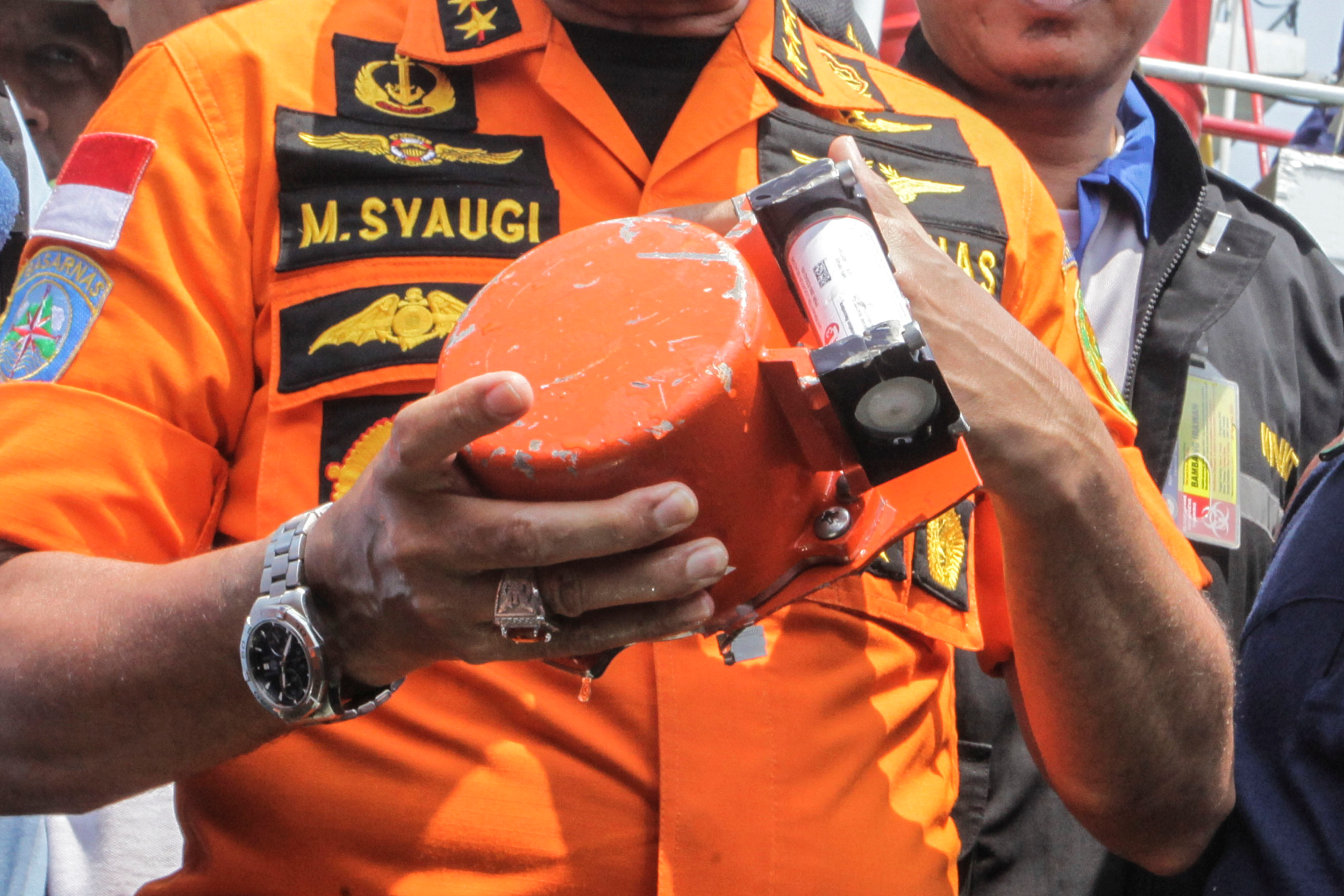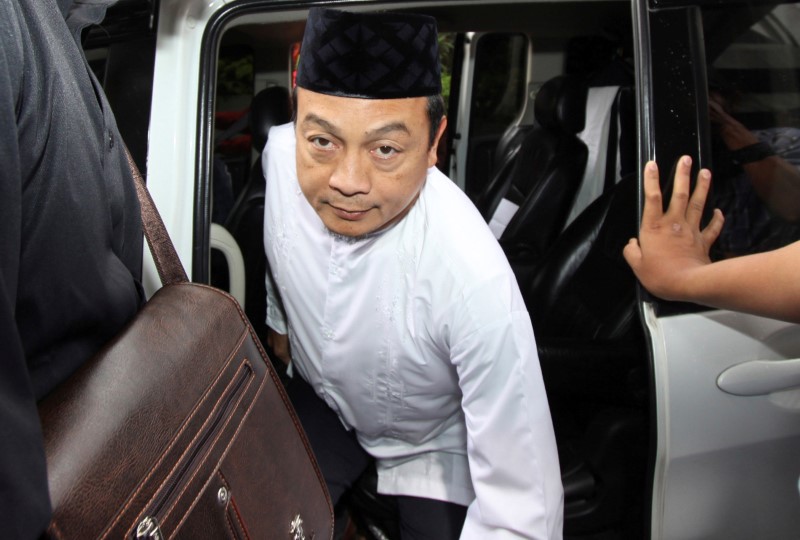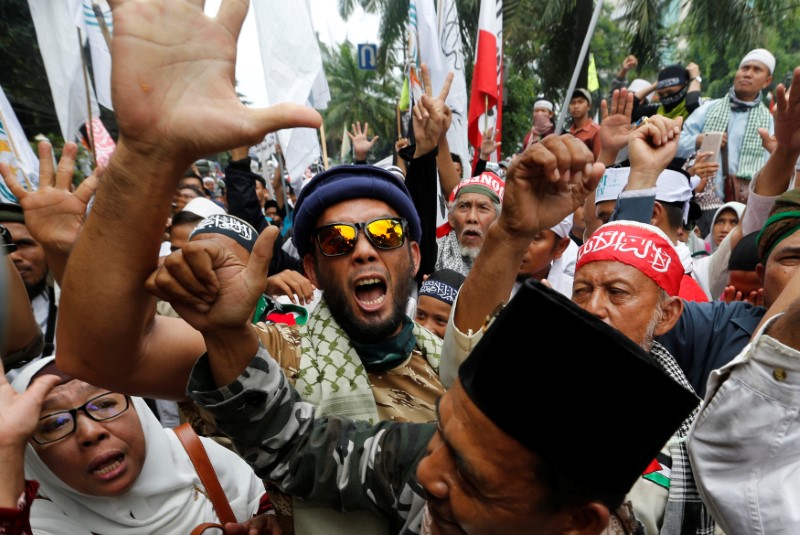
By Cindy Silviana and Agustinus Beo Da Costa
JAKARTA (Reuters) – Indonesian authorities on Thursday retrieved a flight data recorder from a Lion Air jet that crashed and broke apart in shallow sea near the capital, Jakarta, this week, killing all 189 people on board.
The country’s second-deadliest air disaster since 1997 has prompted renewed concern about Indonesia’s patchy aviation safety record, and the government has said Lion Air will face tougher safety regulation.
Investigations into the world’s first crash of a Boeing Co 737 MAX, introduced into commercial service last year, will be scrutinized by the global aviation industry.
“Hopefully, this can unveil the mystery behind the plane crash,” Indonesia’s transportation safety committee chief Soerjanto Tjahjono told a news conference at Jakarta’s main port after receiving the device, known as a black box.
The data it holds should provide clues to what went wrong with the plane, which had only been in service since August.
It lost contact with ground staff just 13 minutes after taking off early on Monday from Jakarta, on its way to the tin-mining town of Pangkal Pinang.
The pilot had asked to return to base shortly after take-off, and ground control officials had approved the request.
A navy diver told broadcaster Metro TV on board a search vessel his team found the orange-colored box intact in debris on the muddy seafloor.
Indonesia’s transportation safety committee (KNKT) will analyze its data in Jakarta, which could take up to two weeks.
Searchers have yet to find the second black box containing recordings of cockpit conversations. Strong currents have hampered search efforts, complicated by the presence of energy pipelines in the area.
The discovery of the black box may provide some relief to grieving relatives. But hopes are fading of finding a large section of fuselage intact with bodies, easily retrievable, inside.
The commander of the navy divers involved in the search was quoted by the Kompas.com news portal as saying divers had found many bodies. But only one has been identified.
“What is important for us is to get more information about the victims because having their remains back is important for us so we can bury them properly,” said Ade Inyo, whose brother in law was on the flight.
MORE INSPECTIONS, SAFETY REVIEW
The investigation will be carried out with help from Boeing, General Electric and the Federal Aviation Federation, officials have said.
It will also focus on four of Lion Air’s staff including its technical director who were suspended by Indonesia’s transportation ministry on Wednesday amid speculation the aircraft was not airworthy.
“For now, we will focus on two primary causes,” KNKT deputy chief Haryo Satmiko told Reuters, referring to equipment and the people who flew, maintained and managed the aircraft.
The transport ministry suspended for 120 days Lion Air’s maintenance and engineering director, fleet maintenance manager and the release engineer who gave the jet permission to fly on Monday, it said in a press release.
Founded in 1999, the privately owned budget carrier’s aircraft have been involved in at least 15 safety incidents and it has faced tougher international safety restrictions than other Indonesian airlines.
It will now be subjected to more intensive “on-ramp” inspections compared with other airlines, authorities said.
President Joko Widodo has also ordered a review of all regulations relating to flight safety.
Indonesia is one of the world’s fastest-growing aviation markets. Its transportation safety committee investigated 137 serious aviation incidents from 2012 to 2017.
Lion Air said the aircraft that crashed had been airworthy and the pilot and co-pilot had 11,000 hours of flying time between them.
But according to the transport safety committee, the plane had technical problems on its previous flight on Sunday, from the city of Denpasar on the resort island of Bali, including an issue over “unreliable airspeed”.
Lion Air chief executive Edward Sirait has acknowledged reports of technical problems with the aircraft but said maintenance had been carried out “according to procedure” before it was cleared to fly again.
Lion Air’s only other fatal accident was in 2004 when an MD-82 crashed upon landing at Solo City, killing 25 of the 163 people on board, according to the Flight Safety Foundation’s Aviation Safety Network.
In April, the airline announced a firm order to buy 50 Boeing 737 MAX 10 narrowbody jets with a list price of $6.24 billion. It is one of the U.S. planemaker’s largest customers globally and was the first carrier globally to take delivery of the 737 MAX last year.
(Reporting by Jakarta bureau; Writing by Fergus Jensen and Ed Davies; Editing by Clarence Fernandez, Robert Birsel)













